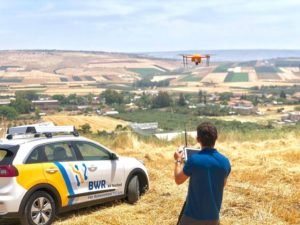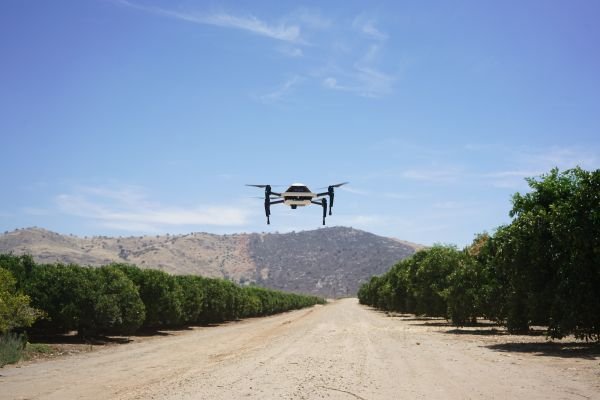Aerial pollination is being done, using drones, by date plantation farmers of Israeli, located in the Jordan Valley and Arava. This innovative solution is aimed at overcoming labor shortages caused by the coronavirus outbreak.
 Farmers have grown particularly concerned as border crossings were closed, precisely as they entered the critical palm tree pollination period between February and April. Recruiting local hands willing to work in peripheral areas has also proved challenging for the growers.
Farmers have grown particularly concerned as border crossings were closed, precisely as they entered the critical palm tree pollination period between February and April. Recruiting local hands willing to work in peripheral areas has also proved challenging for the growers.
To ensure continued pollination, growers turned to Israeli unmanned system operator Blue White Robotics (BWR) and New York-based drone pollinator Dropcopter, who have successfully tested drone-based palm pollination in recent months at the Arava Institute.
Aerial pollination has become increasingly important due to recent flooding in the Jordan Valley, which has prevented ground pollination in many areas and also due to a sharp decline in bee populations in the region.
In Times Of COVID-19: Helping Farmers Adopt Labor-Saving Technology
The large-scale project uses multiple drones flying simultaneously, equipped with innovative pods developed by Dropcopter to store and effectively dispense pollen from the air. The solution replaces an alternative and ineffic

ient technique using fans attached to tractors.
With date plantations in Israel totaling some 15,000 acres and each palm tree requiring pollination on four occasions, technological solutions are key to reducing the manpower needed during the pollination period.
Growing dates from strains of Medjool require a lot of working hands and, despite all the technological solutions that we have today, the drones give a solution that is not only faster and more efficient, but also more economical and accurate so that profits are not just doubled but tripled in some cases.
Reference- The Jerusalem Post, Dropcopter website, Blue White Robotics website







